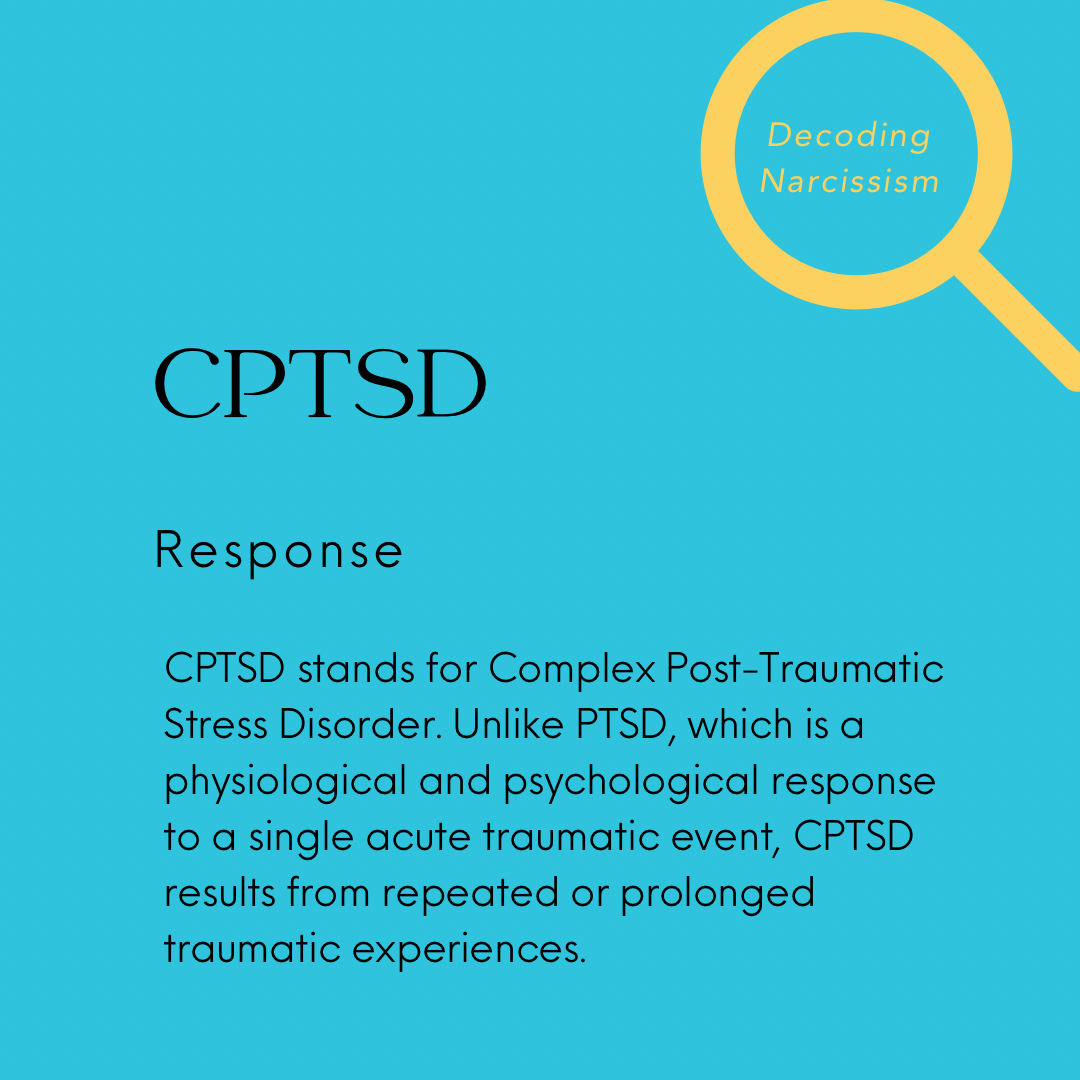CPTSD stands for Complex Post-Traumatic Stress Disorder. Unlike PTSD, which is a physiological and psychological response to a single acute traumatic event, CPTSD results from repeated or prolonged traumatic experiences.
Because of the ongoing emotional abuse that permeates narcissistic relationships, many survivors of narcissistic abuse struggle with symptoms of CPTSD, which is one of the reasons recovery from narcissistic abuse is so challenging.
The symptoms of CPTSD are similar to those of classic PTSD, but also include those directly related to the abuse suffered in the relationship. Some possible symptoms include:
Hypervigilance: Always on the lookout for potential threats
Hypersensitivity
Self-doubt
Anxiety or depression
Mood swings and emotional hyperreactivity
Poor self-esteem
Self-isolating
Confusion
Rumination or obsession with the relationship or with the narcissist; inability to let go
Fight, flight, freeze, or fawn responses
A pervasive sense of doom or despair
Insomnia
Physical symptoms or ailments
Feelings of helplessness and hopelessness
Flashbacks
Trust issues
Difficulty with memory or concentration
If you're experiencing any of these symptoms after a narcissistic relationship, please seek help from a mental health professional specializing in trauma. Healing from narcissistic abuse isn't something you want to tackle on your own. It isn't easy (I've been there)—but it's doable. (I'm here now.)



